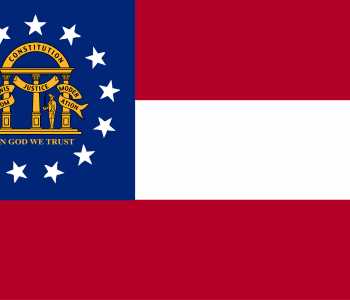New York Business License

New York Business Licenses, Permits and Registrations Tax Registration in New York
Starting a small business in New York will require you to perform several tasks. Such tasks include submitting applications for permits, licenses and identification numbers. The need for such applications vary according to the kind of service in which you will be providing. Of course, paying certain taxes are customary like corporate tax, sales tax and unemployment tax. However, you may be required to pay other taxes as well. But, your responsibility to paying these taxes is dependent upon the nature of your business. The following is a list of those potential taxes:
- Highway usage tax
- Mortgage recording tax
- Hazardous waste tax
- Taxicab ride tax
- Alcoholic beverage tax
A more comprehensive list of possible taxes can be obtained from the New York Department of Taxation and Finance. The New York State Tax Guide is an additional source of information for those individuals who have plans to open a business in New York.
Business Licenses
It is mandated in New York that businesses procure the correct licenses and permits prior to opening. Primarily, it is the nature of your business that will determine the quantity of licenses and permits required and the costs of them. Different businesses require different permits and licenses. The licenses and permits needed to operate a massage parlor would differ from those required for operating a shoe repair store. Help with ascertaining which professions require which licenses or permits will be provided by the New York State Office of Professions.
Local Permits
You can streamline your search for the necessary permits by accessing the website for the New York State Online Permit Assistance and Licensing. Regulations are unique to that individual municipality. With that being said, the following is a list of some of the customary permits and licenses that may be required:
- Zoning permit
- Health permit
- Signage permit
- Building permit
- Occupational permit
- Tax permit and/or Business license
Incorporation Filing
All businesses in New York that are classified as non-profits, limited liability companies, partnerships and corporations must complete an official application or form during registration. However, registration is not required for those businesses that are classified as sole proprietorships. But, it should be noted that the name of the business will be similar to the owner's name. You can circumvent this by registering your business under a fictitious name.
Doing Business As
Registering your business under a fictitious name is known as "doing business as" (DBA). In other words, you are operating your business under this name as opposed to its legal name. The procedure for establishing a DBA involves just a few steps. First, you create a name that is different from your own personal name. Second, you check the database to make certain that the name you selected is actually available. Finally, you proceed to the county clerk's office where you will register the DBA name. This procedure does not have a set price. It varies from county to county. As previously mentioned, this procedure is appropriate only if the business is a limited liability company, a partnership or a corporation. If it is a sole proprietorship, then this procedure is optional.
Employer Requirements
Income Taxes Being Withheld
Typically, employment tax records are kept for four years from the point following the fourth quarter of the year. Accurate maintenance of these records is pivotal. As such, employment tax records should contain the following items:
- Employees' personal information, which includes their social security numbers
- The identification number of the employer
- Copies of employees' tax withholding allowance certificates
- Information regarding annuity, pension and wage payments
Consult the website for the Internal Revenue Service (IRS) for a more comprehensive list of items. Accurate maintenance and organization of your employment records will give you a sense of how well your business is doing. You can continuously monitor its progress and growth. Such systematic records will also help you in the preparation of tax returns, as well as with locating your receipts and determining which items are tax deductible.
Forms W-4 and W-2
Known as a withholding exemption certificate, Form W-4 must be signed by each employee. It is then sent to the IRS by the employer.
The information found on Form W-2 pertains to an employee's paid wages and withheld taxes for the prior year. This form also falls within the employer's scope of duties. Annually, The Social Security Administration should be in receipt of copy A of this form by the end of February. However, if the form is sent electronically, then the date is extended to the end of March. Employees should be in receipt of their copies of Form W-2 by the end of January of the following year. And, all copies that are returned as being undeliverable should remain on file.
Information regarding the filing of the W-4 and W-2 forms has been provided by the following:
- The website for The Internal Revenue Service Employer Tax Guide
- The website for The Social Security Administration Employer W-2 Filing Instructions and Information
Employee Eligibility Verification (Form I-9)
Form I-9 must be completed by all new employees within three days of their employment. This form serves as proof that the employee is eligible to work in the United States. As such, employers are responsible for ensuring that a completed form is on file for every employee. This form is located on the website for the United States Citizenship and Immigration Services.
Reporting New Hires
The collection and reporting of information pertaining to new employees is the responsibility of employers. This should be performed within the first 20 days of their employment. The following information should be collected: the employee's employment date, social security number, address, full name, health benefits and the employer's information. More information can be found on the website for the New York State Department of Taxation and Finance New Hire Reporting.
Insurance Requirements
Any New York business that has employees will incur additional expenditures in the form of taxes. Such taxes include unemployment insurance, disability insurance and worker's compensation.
Unemployment insurance helps those employees who are able and willing to work. Situations concerning liability for this tax will differ according to the nature of your business. Your liability can be established by visiting the website for the New York State Department of Labor. The required documents can also be downloaded from this website.
Disability insurance is beneficial for those employees who suffer injuries that are not work-related. Employers are responsible for deducting this tax from employees' wages and sending the information to the state. More information is available on the website for the New York Worker's Compensation Board.
Worker's compensation is beneficial for those employees who are injured on the job. Additional information regarding this tax can also be located on the website for the New York Worker's Compensation Board.
FAQ
Do you want to open a New York-based business and require a license?
New York City requires that anyone who wants to open a new business must find out if they are required to obtain a business licence. You may also need to get other permits and licenses in order to start a business. Every business must speak with a representative of New York City about their business license. This can be done in person at the City Hall of New York:
City of New York
DCA Licensing Center
42 Broadway, 5th Floor
New York, NY 10004
Call 311 or 212-NEWYORK if you are not in New York City.
You can not only receive the business license applications online, but you can also submit them from your computer at home using Easy Start. This program is available on New York City's Business Express website. To receive planning approval, you must bring your completed applications and questionnaires to City Hall. Before you sign any real estate agreements, it is a good idea to check with the Department of Planning to ensure that your business is permitted to operate in the area where you are interested. Once you have received building and planning approval, your questionnaires and applications will be brought to the City Clerk's Office. There you will pay any applicable fees or get more information about additional permits, licenses, and approvals required for your business type. Even though you do not need a business license to inspect your property, it is still necessary. Their pertinent information can be viewed at http://www.nyc.gov/html/dcp/.
What makes me obligated to sign up for the City of New York's Business Express program?
Each time a potential owner registers, applies to the business, pays the fees, and creates a business situation online, it reduces the time required for business licenses. You can also save time at City Hall by using all the resources available to you at home.
How can I navigate the City of New York's Business Express system?
Register for the website. Create an 8-digit password and enter your email address. After you have followed the prompts and entered the security letters, you will receive a verification email. Next, select Easy START to create your business scenario. A series of questions will be asked about your business. Easy START helps you prepare for every step of your business process by showing information in the following categories.
- Start a business: (Assumed name, Employee Identification number)
- Open your business: (Fire requirements and recycling, waste, employee insurance, disability, and any other related field.
- Your business should be managed: Legalities relevant to your field, hiring, workers compensation, etc.
- Regulations: You will need to know the current laws and regulations.
Is my business eligible for special incentive programs?
Use the Incentive Scenarios function of Business Express to determine if your business is eligible for financial aid. To receive a list of possible incentives available to your business, you will need to answer some questions about your company. In certain cases, you may be eligible for a dollar amount.
Here are some tips to help you prepare:
- The physical location of the property, its size/square footage, zoning information, and value
- Your lease terms
- The basic business activity/function with the number of employees and energy consumption
- Investments with dollar-value estimates for planned upgrades/improvements and any equipment purchases
Contact the City Of New York at 311 (or 212NEWYORK if you are not in New York City) for questions about the financial aid programs or incentive programs.
What information do you need to apply for a New York business license?
Complete your business license application. You should mark any sections that do not pertain to your business or you as a person with a N/A sign. You cannot leave any part of your application unfilled. The following information is required:
- Your business name
- Your physical address
- Mailing address for businesses
- Information about ownership: A partnership, sole proprietorship, LLC, or part of larger corporations
- Contact information is current for all owners
- Federal tax ID number, state seller’s permit, state tax number, and contractor’s license number
- Information about home-based businesses, if applicable
- Date and signature
Once you have completed your application, sign it and date it. Your signature on the application legally confirms that you have read and understood all information. It also certifies that you will comply with all applicable federal, state, and/or local regulations and codes pertaining to business operation.
For more information, who should you contact?
You can reach the City Clerk in New York at:
City of New York
DCA Licensing Center
42 Broadway, 5th Floor
New York, NY 10004
Call 311 or 212-NEWYORK if you are not in New York City.
For more information, you can also visit the New York City Website.






